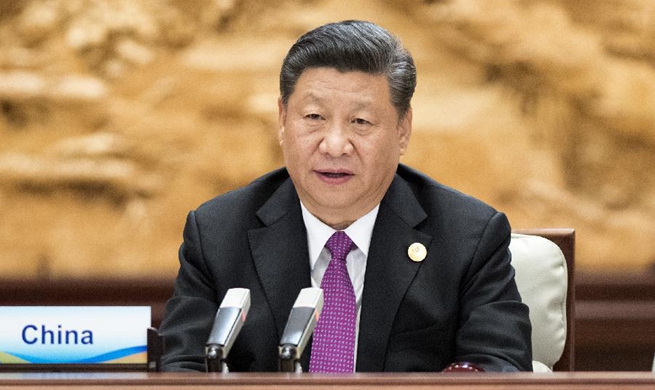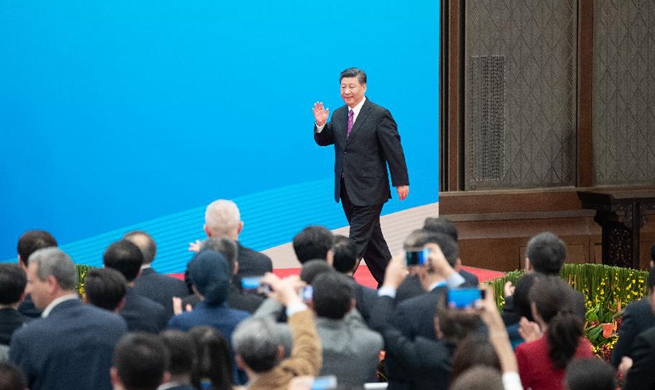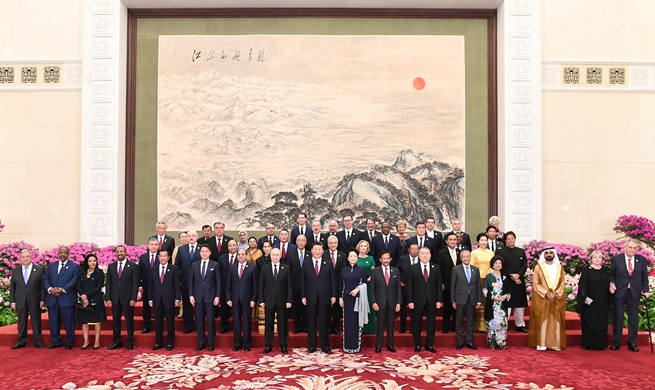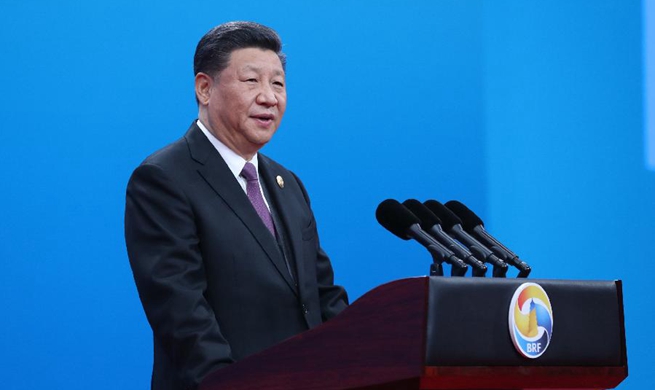BAGHDAD, April 27 (Xinhua) -- Iraqi prominent Shiite cleric Moqtada al-Sadr on Saturday called for stopping dragging Iraq into U.S.-Iran conflict and suggested to close the U.S. embassy in Baghdad.
A statement by al-Sadr said that he is concerned about the "increase of interventions" in the Iraqi affairs that aimed at dragging Iraq into the U.S.-Iran conflict, and made 10 proposals including closing the U.S. embassy in Baghdad and withdrawing the Iraqi militias from the neighboring Syria.
"My concerns are increasing day after day, as I see that the interventions from both sides (U.S. and Iran) in the Iraqi affairs took roots and deepened," al-Sadr said.
He said that the weakness of the Iraqi government, political infighting and widespread corruption made Iraq depend on both sides and unable to give up, according to the statement.
Al-Sadr called for closure of the U.S. embassy in Baghdad if Iraq is dragged in this conflict, warning that the embassy will be under fire of the resistance fighters again, referring to the attacks carried out by militias previously on the Green Zone where the U.S. embassy is located.
Al-Sadr's proposals also included sending delegations to the United Nations, European Union, Organization of Islamic Cooperation and Saudi Arabia to ease the tension in the Middle East region.
He also called for withdrawal of the Iraqi militias, including those affiliated with Hashd Shaabi, from Syria. In addition, he urged the signing of a treaty between Iraq, Iran and Saudi Arabia to bring some peace to the region, the statement added.
His comments came amid anger among Iraq Shiite parties against the United States after the U.S. embassy in Baghdad accused the Iranian leader Ali Khamenei of corruption.
Al-Sadr's statement also came a few days after the U.S. President Donald Trump decided not to reissue the sanction waivers allowing major importers to continue buying Iran's oil when they expire in early May.
Following the exit from the Iran nuclear deal in May last year, the Trump's administration has kept piling up pressure on Iran through a series of sanctions and designations, which have been strongly opposed and criticized by Tehran.

















